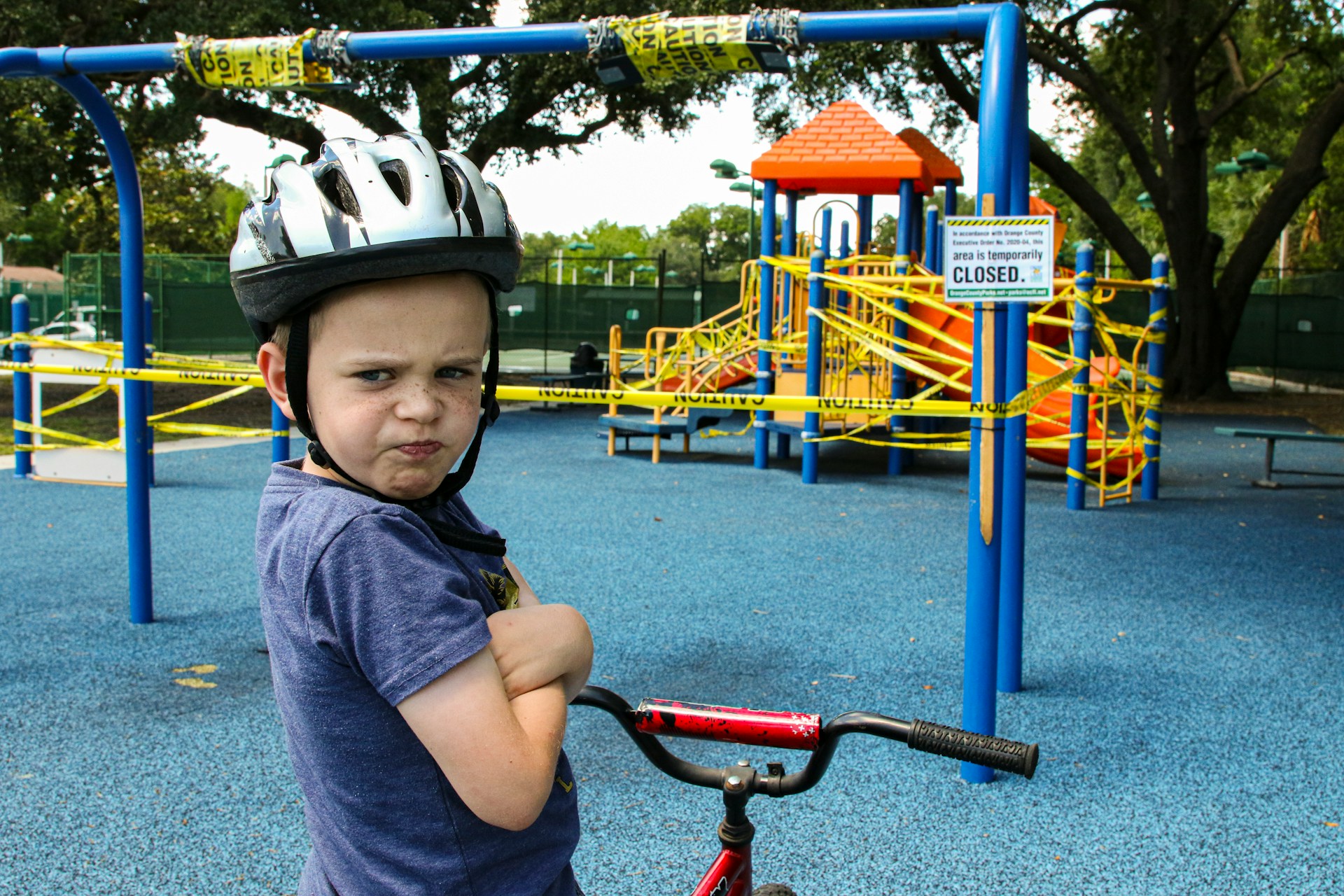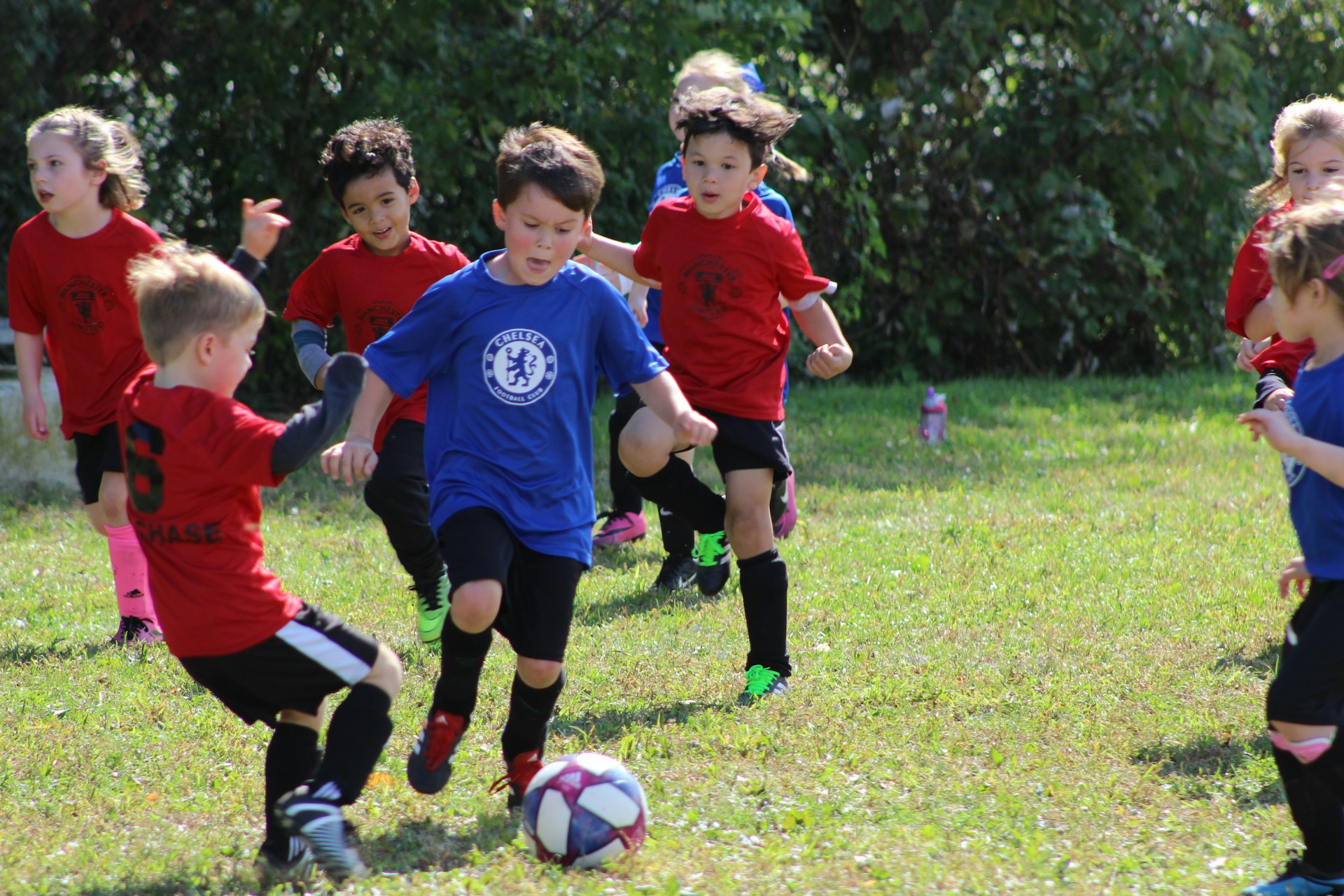Let’s cut right to the chase! As a parent, you know the deal: kids will always be a handful no matter what — there’s simply no escaping it. But that doesn’t mean you shouldn’t take proactive steps to make your life a little easier. Here are 20 simple and effective ways to keep your overactive child cool, calm and collected.
1. Set Clear and Consistent Boundaries
Ambiguity is the root of all miscommunication! If there's one thing kids need, it's clear, consistent boundaries and consequences. By firmly establishing your expectations, you will not only help your children understand which behaviours are acceptable and unacceptable, but you'll also provide them with a consistent framework within which they can excel and thrive.
2. Get Active
Everyone needs to blow off some steam, and this is especially true for overactive kids! Regular physical activity is crucial in giving your child a positive outlet to expend all of their over-the-top energy. Activities like sports, dancing, and martial arts are not only great ways to calm your child, but they also provide them with a productive recreation that helps them grow into adolescence by fostering social development and confidence.
3. Teach Your Kids Relaxation Techniques
Coping with stress is something that everyone deals with (children and adults alike). Relaxation techniques such as deep breathing, meditation, or yoga can help your child learn to control their excitement and manage stress effectively. Practicing relaxation and mindfulness techniques will help your child become more aware of their feelings and actions, which is especially useful during times of high energy and stress.
4. Limit Screen Time
Baby Shark didn’t just appear out of thin air. Screens are the modern-day pacifier, there’s simply no getting around it. They are a tool, and like with any tool, they are prone to overuse. Screens are the ultimate distraction to subdue hyperactive kids, but too much screen time can exacerbate hyperactivity by reducing attention spans and serving as more of a bandaid than a solution — so use them sparingly.
5. Use Positive Reinforcement
You have to put a positive spin on convincing your overactive child to be calm if you expect worthwhile results. Kids don’t want to be forced into calming down. You're much better off creating an atmosphere in which peace and tranquillity are not only desired but actively encouraged and rewarded. Even time-outs don't have to be a drag if you make them fun and enjoyable.
6. Create a Quiet Space
Everyone needs some quiet time… even Superman has a “fortress of solitude”. Having a designated quiet space at home where your child can go to relax, read, or engage in quiet play will serve as a peaceful sanctuary for them. A space free from loud noises and stimulating activities can help imbue your child with a sense of calm that they carry over into the rest of their day. As mentioned previously, this can serve as a great alternative to the dreaded traditional time-out.
7. Offer Creative Outlets
An overactive mind is a terrible thing to waste — especially when it can be channeled toward something productive. Activities that require attention to detail, such as knitting, drawing, or model building, will not only help keep them keep busy but will also gear your child toward a calming and mindful outlet that won’t stifle their imagination.
8. Implement a Healthy Diet
We all know that having your kids hopped up on highly processed breakfast cereals and soda isn’t doing them any favours. But it’s also not doing you any favours either. Sure, it might be more convenient to take a passive approach to your kid’s diet, but this will only serve to hurt both of you in the long run. Being proactive with your child’s diet by limiting ultra-processed, sugary foods will create more stable energy levels throughout the day.
9. Ensure Adequate Sleep
Whether we like it or not, we all feel it when we don't get a good night's sleep ᅳ and this is no different for kids. Lack of sleep will squelch your child's ability to control their impulses, causing them to lash out in unforeseen, catastrophic ways. By establishing a calming bedtime routine and ensuring they get enough sleep every night, you'll know that your child starts each day off on the right foot.
10. Break Tasks into Smaller Steps
Overactive children already have a hard time focusing as it is, there's no sense in adding more to that burden. Although it's important to keep your kids busy with tasks and activities, you have to do it in a controlled and mindful way. You can do this by providing them with manageable steps and goals that won’t serve to overwhelm or excite your child to the point of discouragement.
11. Promote Non-Competitive Activities
The key to any good strategy is balance. Sports, and most competitive games in general, are a great way for your child to channel their unwavering energy by providing them with extra motivation to focus their efforts towards a productive and useful endeavour. But it's also important to offset this competitive spirit with activities that encourage other valuable principles like cooperation, sharing, self-reflection and not comparing one's self with others as a form of gratification.
12. Promote A Connection With Nature
Sometimes all you need is a change of scenery, and there’s no better scenery than nature itself. Activities that promote spending time in nature, such as hiking or playing in a park, can have a grounding effect on overactive children. Not only is the serenity of nature calming in and of itself, but many activities in nature require some form of exercise which will further contribute to reducing hyperactivity and improving their overall mood and wellbeing.
13. Create a Consistent Daily Routine
Think of how chaotic and aimless your own life is without a routine. Now imagine the stress that can pose for a child with an overactive mind. Creating a consistent daily routine gives children a sense of security and predictability. This will allow them to settle into a strict daily routine that accounts for their excitability and provides them with tasks and activities to channel all their untapped energy healthily.
14. Introduce Weighted Blankets or Vests
There’s nothing more calming than a cozy blanket… especially one with some weight to it. Research has shown that weighted blankets (or vests) can provide one with a sense of security and comfort — which, in turn, will help reduce stress and limit the sleep-altering effects of an overactive mind.
15. Use Calming Scents
Your child is, and will always be, a product of his or her environment. That’s why you need to take every precaution to create and foster an environment that serves to reinforce a calm and tranquil mindset. Aromatherapy (i.e. utilizing calming scents like lavender or chamomile) can create a relaxing environment. Meanwhile, diffusers or scented pillows might be especially useful before bed or during designated relaxation time.
16. Incorporate Animal Therapy
There’s a reason why animals are so often utilized in helping to regulate moods and lift people's spirits. These cuddly creatures are great at increasing social engagement, decreasing loneliness and boredom, and improving overall quality of life. A pet can also instill in your child a greater sense of responsibility and accountability, which will ultimately lead to less hyperactivity and a heightened sense of purpose.
17. Never Reinforce Bad Behaviour
Oftentimes busy and overworked parents are too fed up to adequately deal with their overactive child. Their desperation to quell their kids leads them down the path of least resistance and this usually includes some kind of treat or reward. But doing this won’t serve you well in the long run, and will only reinforce undesirable habits.
18. Practice Gratitude Exercises
There’s no better way to soothe an overactive mind than to stop and smell the roses. We so often find ourselves burdened with thinking about our problems and what we don’t have, that we never take the time to reflect on what’s been there all along. With kids, this sense of yearning and discontent is heightened even more by factors like social media and peer pressure. Simple daily gratitude exercises can help cultivate a sense of calm and appreciation for both you and your child.
19. Lead By Example
As a stressed-out parent, it can be hard to maintain your cool, especially in the face of mounting pressures like work, getting along with your spouse, and of course: parenting! But it's important to remember that your child observes everything that you do and will often mimic your behaviours, so try to ensure that your child has someone calm and collected to look to as an example of how they should behave in their day-to-day life.
 Photo by Xavier Mouton Photographie
Photo by Xavier Mouton Photographie
20. Take An Active Role In Your Child’s Social Life
As stated before, kids are like sponges when it comes to replicating the behaviours that they’re exposed to. That’s why you must take steps to know who your kids are hanging around with and how it may be influencing the behaviours they bring home to you. Take an active role in getting involved with your child’s school, fostering good relationships with parents, and making play dates with parents whom you trust.


























